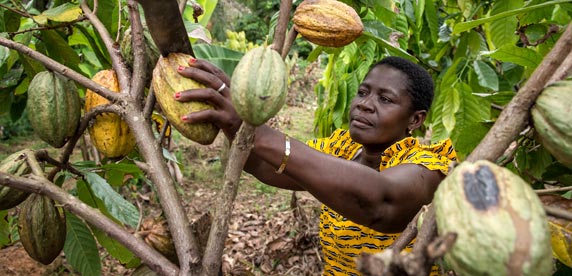Ivory Coast plans to increase the fixed farmgate price paid to cocoa farmers by more than 21% to 1,000 CFA Francs (US$1.84) per kilogram in the 2020/2021 season, sources from the country’s Coffee and Cocoa Council (CCC) said on Thursday.
In June 2019 Ivory Coast and Ghana established a price floor of $2,600 per tonne and a Living Income Differential (LID) of US$400 per tonne, in order to tackle poverty among farmers.
During a visit to Moronou region in the east of the country, President Alassane Ouattara, who is running for another term next October, announced that he had good news to announce to planters in October without giving more details.
CCC sources confirmed President Ouattara will announce the price increase himself on Oct. 1 in Yamoussoukro.
Last month the world’s two largest cocoa producers, Ivory Coast and Ghana, created a joint body to improve coordination in research, price setting and the fight against child labour.
Ghana is expected to announce an equivalent increase in farm gate prices over the coming weeks although this is not certain. Ghana has resisted concerted lobbying by cocoa farmers to raise the prices it pays to farmers in recent years, because the state owned cocoa industry regulator and facilitator, COCOBOD, is grappling with long term debt incurred because of the unsustainable cost of its interventions for farmers which range from rural roads for crop evacuation, through subsidized inputs such as fertilizer and free services such as mass spraying against pests, to scholarships for farmers children.
But this is an election year and usually, successive administrations have raised prices at such times to win votes. However, this year brings peculiar circumstances in that the new Living Incomer Differential (LID) of US$400 per ton is already being introduced to the benefit of cocoa farmers in both Cote d’Ivoire and Ghana which between them produce 60 per cent of the world’s cocoa. The Government of Ghana negotiated this in collaboration with the Ivorian government and may insist that it is enough increment for one year.
Ghana’s laws demand that government pays at least 70 percent of the ruling international cocoa market price to farmers.








